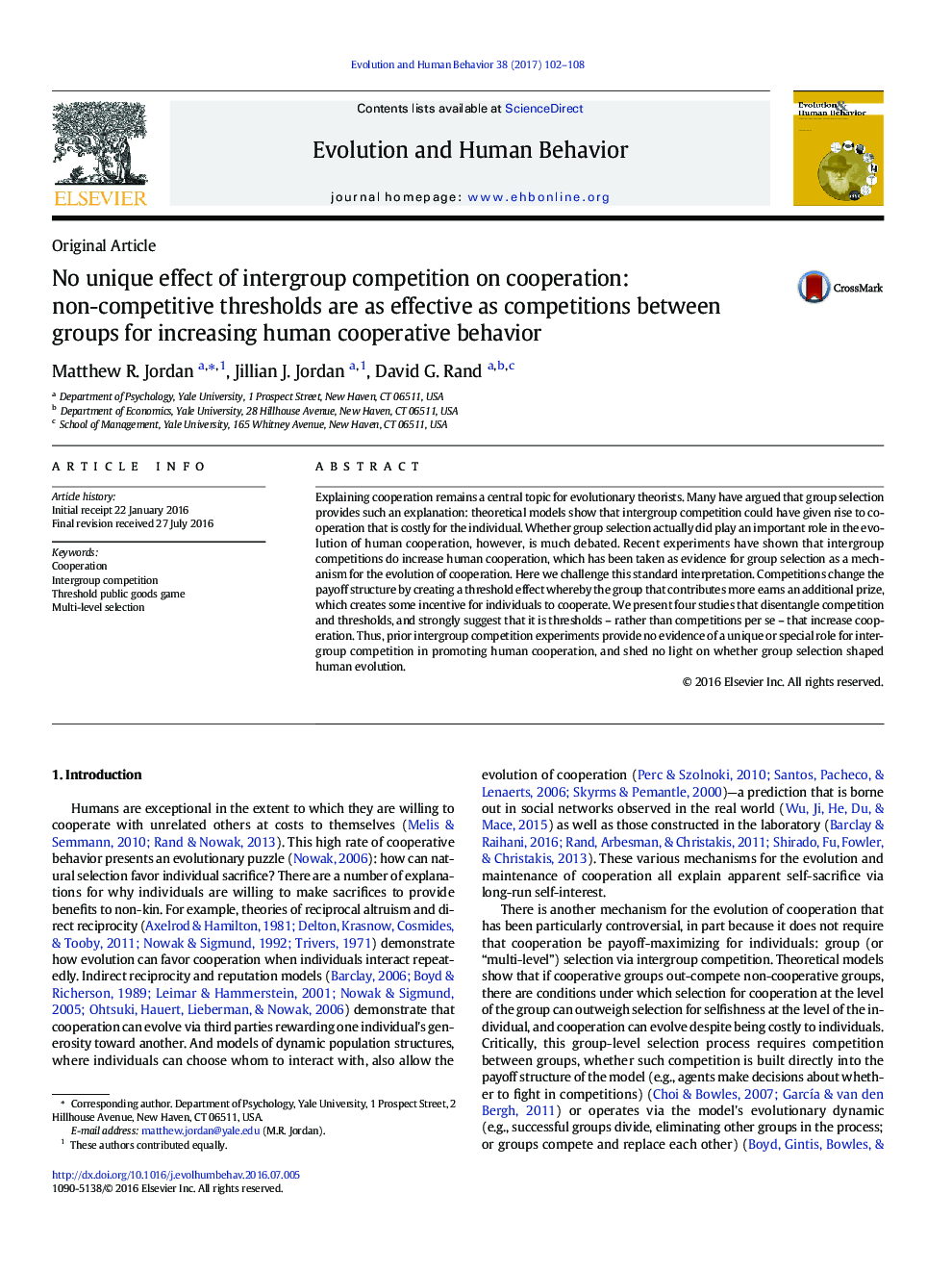| کد مقاله | کد نشریه | سال انتشار | مقاله انگلیسی | نسخه تمام متن |
|---|---|---|---|---|
| 5044854 | 1370636 | 2017 | 7 صفحه PDF | دانلود رایگان |
Explaining cooperation remains a central topic for evolutionary theorists. Many have argued that group selection provides such an explanation: theoretical models show that intergroup competition could have given rise to cooperation that is costly for the individual. Whether group selection actually did play an important role in the evolution of human cooperation, however, is much debated. Recent experiments have shown that intergroup competitions do increase human cooperation, which has been taken as evidence for group selection as a mechanism for the evolution of cooperation. Here we challenge this standard interpretation. Competitions change the payoff structure by creating a threshold effect whereby the group that contributes more earns an additional prize, which creates some incentive for individuals to cooperate. We present four studies that disentangle competition and thresholds, and strongly suggest that it is thresholds - rather than competitions per se - that increase cooperation. Thus, prior intergroup competition experiments provide no evidence of a unique or special role for intergroup competition in promoting human cooperation, and shed no light on whether group selection shaped human evolution.
Journal: Evolution and Human Behavior - Volume 38, Issue 1, January 2017, Pages 102-108
